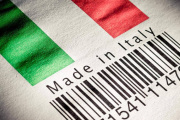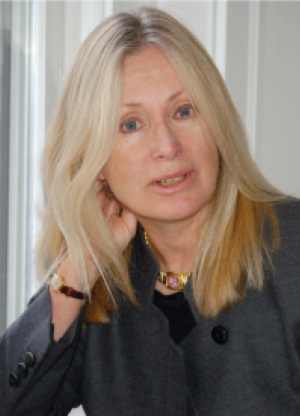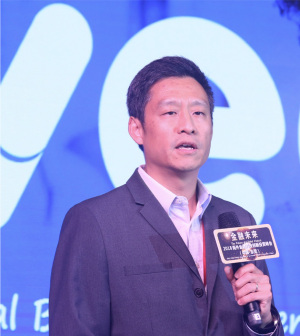What is a blockchain now is known, is a master book, a certification registry, a virtual notary, who works “peer to peer” and when fully operational, according to the luminaries of the matter, acts as the protagonist in many daily transactions of goods and services.
A certification system that directly connects the active subjects of the transaction.
Each of the register unit is a “block”, and the blocks are linked together in the order in which they were created.
The blocks are connected using encryption, which binds them so virtually non-modifiable.
So you can since the birth of the first block to know step by step the history and evolution, of any product, good or service that makes use of this technology.
To better understand what developments and what will bring ‘implications of this technology in our lives and in particular in the field of Made in Italy, we asked the opinion of two eminent personalities’, Serenella Sferza MIT (Massachusetts Institute of Technology), co-director of the MIT Italy Program and Alan Tien, graduated from Stanford University in electrical engineering and today one of the leading experts in the field, and currently senior advisor to some of the most ‘innovative start-ups’ in the sector.
MIT and Stanford University, East Coast and West Coast, Boston and Palo Alto, Cambridge District and Silicon Valley, two large universities, and the two districts with the highest rate of “approach to innovation” in the world, in two areas so different from of them, but so similar, to wit, ability and performance.
Serenella Sferza (Massachusetts Institute of Technology)
Co-Director MIT-Italy Program, came to MIT as Fulbright Fellow from the Universita’ Statale di Milano and stayed to complete a Ph.D. in Political Science. She has taught at several US and European universities, and is an affiliate at the Harvard Center for European Studies. Since 2001, Sferza directs— together with Carlo Ratti—the MIT –Italy Program, an activity for which she has received ferred the title of Cavaliere of the Ordine della Stella in recognition of her work for the preservation and promotion of Italy’s prestige abroad.
The MIT-ITALY Program is an official MIT Program, which serves as a two-ways bridge between MIT and Italy.
The MIT-Italy Program pursues primarily 3 types of activities
1) Internships for MIT students at Italian companies, research centers and schools ( more than 100 in 2018)
2) Start up research collaborations between MIT faculty and their counterparts at partner Italian universities ( more than 20 in 2018)
3) Partnerships with Italian companies interested in collaborating with MIT.
Together with more than a dozen similarly country- or theme -based programs, the MIT –Italy Program compose the MIT International Science and Technology Initiatives ( MISTI) http://misti.mit.edu/about-misti.
How can blockchain technology improve the industrial system according to MIT ?
At MIT cryptocurrencies and blockchain technologies have been debated and experimented with for some time, as to be expected in light of the Institute’s strong mathematical and cryptography research. tells us Serenella Sferza In 2017, for example, 111 MIT graduates opted to receive their graduation certificates exclusively through a blockchain based wallet.
Blockchain technologies promise an automated way to verify trustworthiness, and even build compounded trustability indexes; to trace goods through their multiple passages, and to eliminate the data leakage verification operations inevitably generate. This would amount to making trust – a necessary ingredient of all on which all economic transactions– costless. MIT Sloan professor Christian Catalini has written extensively about how this would disrupt not only financial institutions, but also accounting, supply chains and sectors based on the sharing of sensitive public and private data—like health care.
Can we say we are at the dawn of the crypto world?
MIT tends to be skeptical about sweeping statements. Searching for the point where hype meets hope and becomes reality, the May –June 2018 MIT Technology Review concluded that the “algorithmic consensus” cryptotechnologies promise to deliver needs much testing before such technologies can become “the next internet.”. Even in the most optimistic scenario, the process would take several decades and include many setbacks, as with other disruptive technologies.
Even if a crypto-world were to prevail, its shape is uncertain. For example, in spite of all the enthusiasm for the decentralized functioning of cryptocurrencies, it has been shown that a centralized—whether state or company run– digital currency would be more efficient than a decentralized one. In addition, it has become clear that before they can be adopted on a large scale crypto-exchanges need to come within existing public policy frameworks—and these may continue to differ across countries.
What are the pitfalls for the consumer in the crypto world era?
Hard to say at the moment, since much of the available data is associated with digital cryptocurrencies. Crypto-exchanges have had considerable problems with hack of customer funds and with market integrity. In addition, some critics have pointed out that even as a data storage system, blockchain technology might be neither as efficient, nor as secure as promised. The integrity of ledgers can be compromised by malware, phishing, and private keys exposed either by cybercriminals or, more innocently, by uneducated users.
Can we say the three words of the third millennium will be: Truth – Trust – Reputation?
I work in close contact with scientists and engineers committed to these values, and would love to agree, but cannot. Research has shown that fake news travel much faster than real news, and this trend is hard to stop. Due to the dominance of social media and other policy and economic trends, societies are increasingly segmented into small niches that communicate only within themselves and trust solely their own members. As a result, trust is becoming a currency with very narrow circulation, and the same applies to reputation. This is not a good augur for truth to triumph in the third millennium.
Of course, what happens in politics and social interactions does not necessarily apply to the economy, and blockchain technologies could counter this trend by creating automated objective indicators of trust that travel across societal barriers and borders. I am hopeful in the brainpower devoted to these technologies, but have doubts about technologies being societal problem solvers.
What does the blockchain technology represent for the Made in Italy system?
Certainly a strong opportunity. Blockchain technologies can bring faster, safer, longer distance, cheaper transactions, certify product provenance at all stages, from producers to consumers, and protect the exchange of proprietary technical information, and they can do so in a decentralized way that would not penalize small scale.
All these characteristics, are a strong asset for the Made in Italy—a diverse sector that includes many small companies for which establishing a reputation and a high level of trustability is very expensive and whose products are very susceptible to counterfeiting. By verifying and certifying authenticity, blockchain technology is a natural ally of the truly Made in Italy products—be they industrial or agricultural. By recording all transactions, it will also expose the many “Made in Italy” goods that come largely from elsewhere, acting as a filter between true and false made in Italy. The Made in Italy label will become more restrictive, but it will benefit from this greater rigorousness in terms of quality and reliability. In this respect, blockchain technology will indeed promote transparency and truth.
Alan Tien
Electronic Engineer, graduated from Stanford University, now one of the leading experts in the field, and currently senior advisor to some of the most ‘innovative start-ups’ in the sector.
“I am currently advising for a couple of blockchain startups: Veem.com, Tokenpad.io, ACHPay, and one more in stealth mode still – tells us Alan Tien – The underlying theme for all of them is that blockchain is the foundational technology that is changing all types of businesses. Blockchain technology, which underpins Bitcoin and other crypto-currencies, is in the very early days of the tech – equivalent to 1995 in the Internet. Nowadays, so much of our personal lives and businesses are dependent on the internet, we don’t even think about it. That’s what it will be like with blockchain in 20 years. We will just use it without thinking that it is something special or unique. So, industrial systems is just one vertical that can benefit from using blockchain.
Blockchain provides a single ledger – a single source of truth – for multiple parties to use, in a distributed and secure manner.
We can say that we are at the dawn of the cryptic world?
Yes, that’s actually an interesting usage of the word. It’s “cryptic” in the sense that it’s unclear and confusing where the future will lie specifically, though it’s pretty clear that blockchain will be of value in multiple industries. It’s also “cryptic” in that it uses cryptography to ensure transactions are secure.
What pitfalls for the consumer in the era of the cryptic world?
The biggest pitfall for the unwary consumer is speculation in cryptocurrencies such as Bitcoin, or buying into an ICO (Initial Coin Offering) based on a “whitepaper.” This is why the SEC in the US is regulating new ICOs. They even launched their own fake ICO sale site to teach consumers how to spot a fraudulent token sale.
We can say that the three words of the third millennium will be: Truth – Trust – Reputation?
Those 3 words are all related. Telling the Truth over time creates Trust among parties. Build up enough Trust over time and you get Reputation. In this age of social media, your Reputation is your credit. Interestingly enough, blockchain networks are described as “Trustless.” This implies that you do not have to trust the other parties on the network and yet you can trust the network itself. For example, we know there are bad actors on the internet, and yet with SSL, you can trust that your transaction with Amazon is secure. Blockchain uses very sophisticated cryptography and a fascinating “consensus mechanism” to make sure the decentralized, peer-to-peer system is trustworthy.
What the blockchian technology represents for the Made in Italy system?
Blockchain technology has several benefits that make it a good fit for a system to prove a product was Made in Italy, in other words, to trace its provenance. First of all, all parties in the supply chain would record each step of the process – from the raw materials all the way to the end consumer – on the blockchain’s “distributed ledger.” Multiple computers would all have the same copy of this ledger, so it’s transparent to all the parties. Secondly, secured by cryptography and a clever use of chaining the blocks of data together, the data is “immutable,” meaning unchangeable by anyone. Both the transparency and the immutability are critical for verification of provenance and to handle disputes.
Giovanni Pellerito






